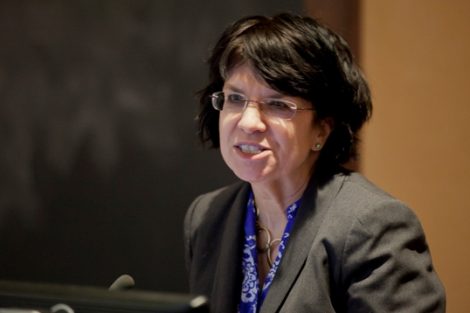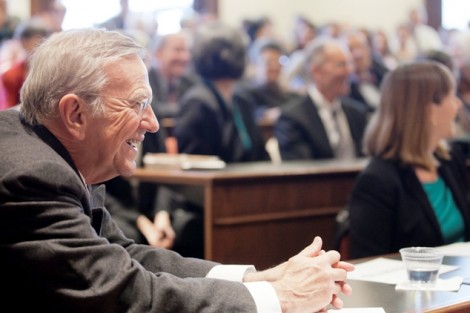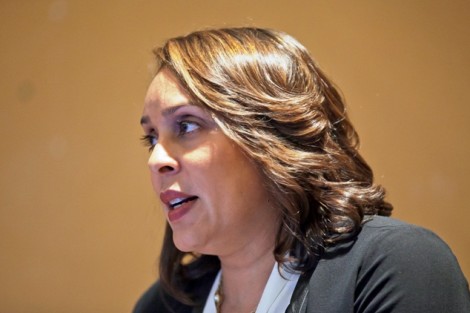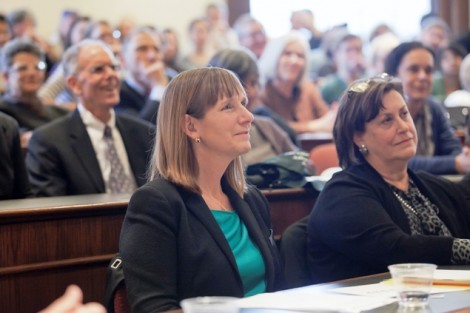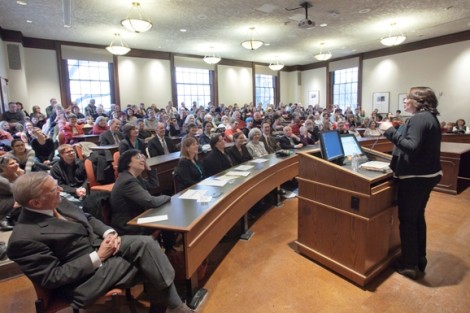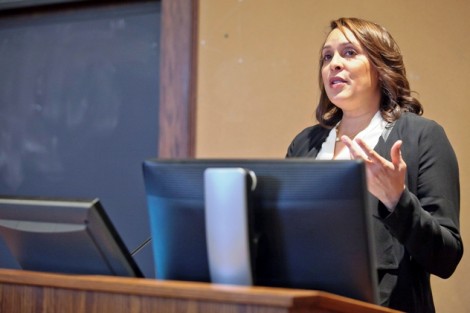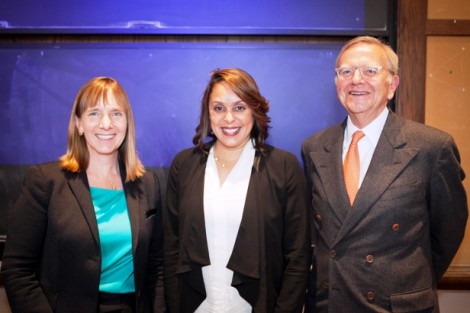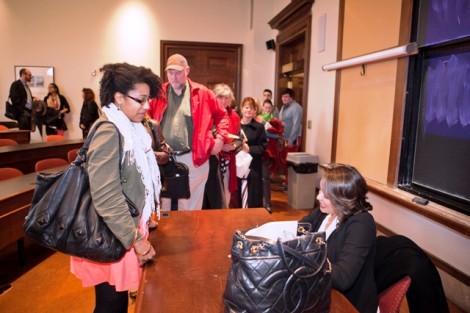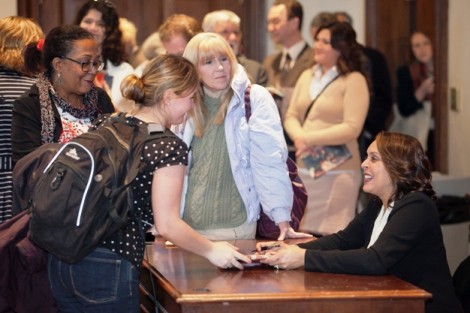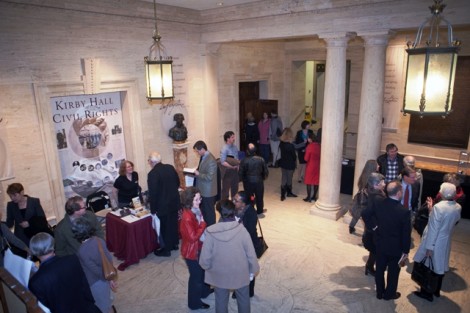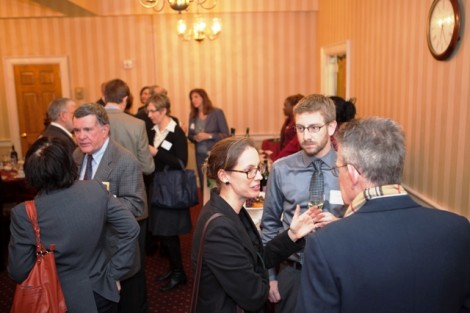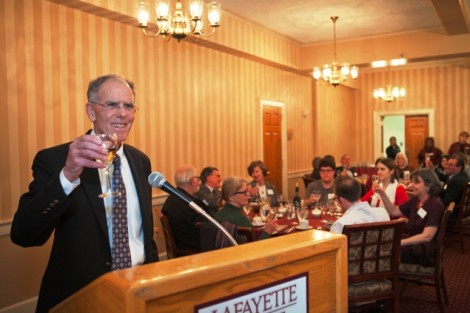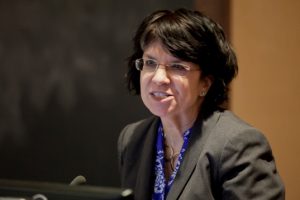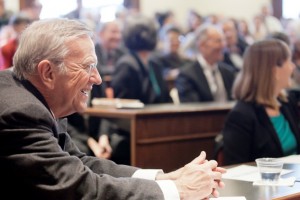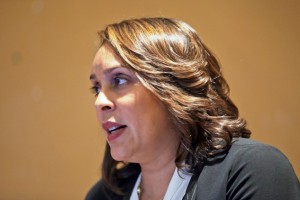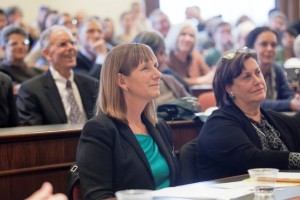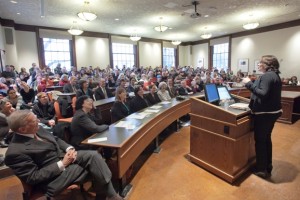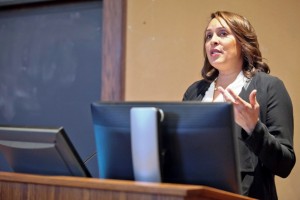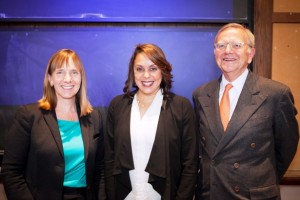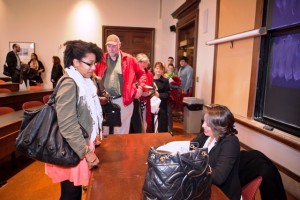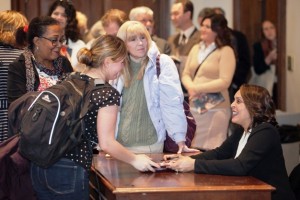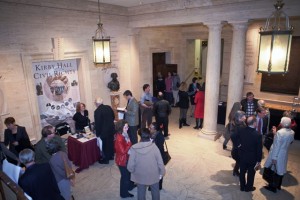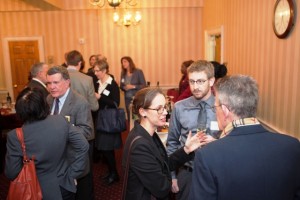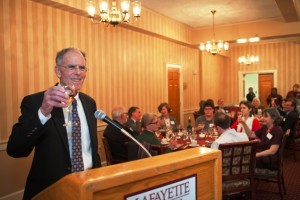“In a time of erosion of civil discourse, poetry is a sacred language that enables us to still connect,” said Natasha Trethewey during her visit to campus March 12.
View more images of Trethewey’s visit on Flickr
Trethewey, the 19th Poet Laureate of the United States, presented the annual John L Hatfield ’67 Lecture hosted by the Friends of Skillman Library. The talk was also the keynote for Lafayette’s celebration of Women’s History Month and served as an introduction to next month’s National Poetry Month events, which includes the 20th anniversary of the MacKnight Black Poetry Competition. Prior to the reading, Trethewey met with students from the Advanced Creative Writing class taught by Lee Upton, professor of English and writer-in-residence.
Trethewey read a number of poems from her book, Native Guard, which won the Pulitzer Prize in 2007, as well as poems from her newest collection, Thrall. Recurring themes in her work are memory, her father, the racial legacy of America, mixed race relationships, the Civil War, southern culture, and the connection between the inner life and the public life.
In Thrall, she wrote a series of poems inspired by a genre of Mexican colonial painting known as casta painting, which depicts a complicated taxonomy of mixed-race children produced by a variety of interracial unions.
This is a very personal theme to Trethewey, as can be seen in this excerpt from “Enlightenment,” a poem about visiting Monticello with her father:
“I’ve made a joke of it, this history
that links us — white father, black daughter –
even as it renders us other to each other.”
Trethewey is the author of two other collections of poetry, Domestic Work (2000) and Bellocq’s Ophelia (2002). Her book of creative nonfiction, Beyond Katrina: A Meditation on the Mississippi Gulf Coast, was published in 2010. She is the recipient of numerous fellowships including ones from National Endowment for the Arts, Guggenheim Foundation, and Rockefeller Foundation. She is the Robert W. Woodruff Professor of English and Creative Writing and director of creative writing at Emory University.
